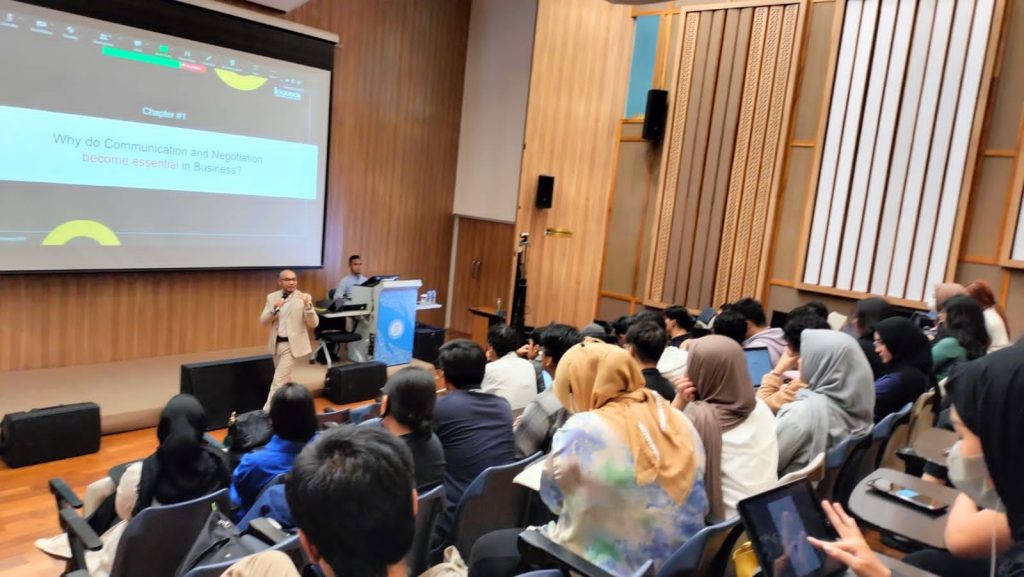Communication and negotiation is one of the fundamental skills needed in all business activities. These skills are essential, especially for business school students and future practitioners. In the Business Communication and Negotiation course (27/6) at SBM ITB, PT Indosat Tbk participated in a guest lecture discussing the best communication and business negotiation practices in multinational companies. The guest lecture was delivered by Steve Saerang, a Senior Vice President at PT Indosat Tbk who is experienced in public relations and corporate communications.
Learning activities begin with a presentation on why communication and negotiation are essential in business. Steve explained that based on his experience, there were three main reasons for the importance of mastering this skill: reaching a consensus and meeting desired expectations, preventing losses and gains for both parties and resolving business disputes or disagreements. After knowing the reasons, it is also crucial for us to know whose side we will communicate. Before communicating with the other party, Steve also explained several things we can do to make the communication smooth. One is building rapport or good relations with the other party, the CEO or the investor.
In this era of globalization, many international business processes have been intertwined. One of them is a multinational company whose owners or organizers consist of several people from various countries, like the Indosat Ooredoo company with Hutchison. Steve explained that cultural differences in business processes often cause several problems and can even lead to the failure of cooperation. To overcome this problem, four steps can be taken by a company, including cross-cultural training, the use of communication technologies, such as Zoom and others, strengthening language skills, and improving quality standards.
Developing cultural awareness is crucial for effective communication in the global business world. Recognizing and respecting the cultural differences of each country is essential. This awareness positively influences the effectiveness of cross-cultural communication. Active listening and empathy are also vital components to consider. When aiming to reach a negotiated decision, attentive listening to the desires and offers of all parties is necessary. In a personal anecdote, Steve Saerang highlighted the importance of listening and attentiveness, stating, “During a meeting with a company, after concluding my presentation, one of the individuals immediately turned to their cell phone. Though seemingly insignificant, it indicated their lack of presence and active listening. Based on that observation, I promptly decided to decline the offer. Therefore, listening attentively and showing care is of utmost importance.”
At the end of the session, Steve shared information about the Indosat company. He closed the guest lecture with a question and answer session followed by his message for SBM ITB students.





